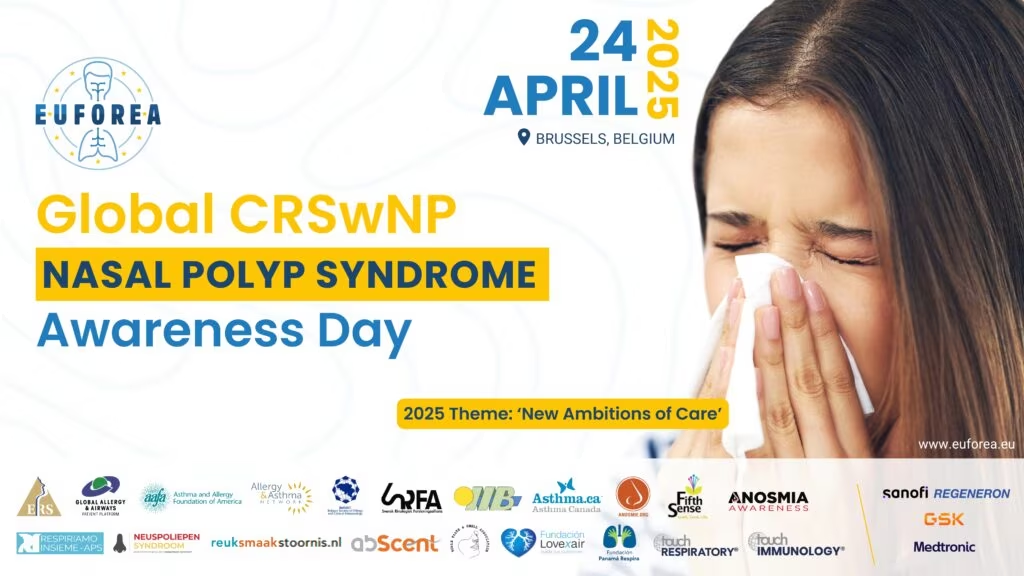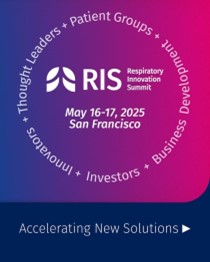Search Results
Showing Results for Asthma

Explore expert perspectives from ATS 2025 with our exclusive interview series. Discover key advances in respiratory care, including updates on COPD, ILD, ventilation strategies, and emerging therapies. Stay informed with concise, clinically relevant insights tailored for healthcare professionals on touchRESPIRATORY.

In this Q&A, Professors David Price and David Halpin discuss their ATS 2025 abstract on improving COPD outcomes through a digital adherence support package. They explore the MAGNIFY trial's design, including how an EMR-driven algorithm identified high-risk patients and how a pharmacist-led intervention combined with a digital inhaler device significantly reduced treatment failure in a real-world primary care setting.

In this EAACI 2025 interview, Dr Remi Gagnon discusses his presentation on the TT-06 phase III trial. This was the first trial to investigate the SQ tree sublingual immunotherapy (SLIT) tablet in children aged 5–17 with tree pollen-induced allergic rhinitis and/or conjunctivitis. This interview explores the impact of seasonal allergies on quality of life and the background, design, and findings from the study.

As part of our EAACI 2025 coverage, we spoke with Dr Eugenio De Corso (Catholic University of the Sacred Heart, Milan) around the EVEREST trial, a phase 4 head-to-head study comparing dupilumab and omalizumab in patients with severe CRSwNP and coexisting asthma. Dr De Corso explores the study’s methodology, key findings, and implications for clinical practice in managing this challenging patient population.

RT234 is a novel investigational therapy combining inhaled dry powder vardenafil with a proprietary oscillating inhaler, designed for rapid, on-demand relief of breathlessness in patients with pulmonary arterial hypertension (PAH). In a phase 2b CPET study, RT234 demonstrated dose-dependent improvements in peak VO₂ and dyspnea. As part of our ATS 2025 coverage, Dr Raymond Benza discusses these findings, current treatment limitations, and the next steps toward a phase III clinical trial.

Physician burnout is at a critical point. In this episode, Nicky speaks with Dr Alfred Atanda about why so many physicians are burning out and what can be done to change the trend. From personal experience to system-wide solutions, Dr Atanda shares valuable insights on improving physician well-being and building a more effective healthcare culture.

Future Leader, Dr Michelle Korah-Sedgwick discusses her innovative work at the intersection of immunology and respiratory care, focusing on uncovering immune deficiencies in chronic lung disease. She shares insights on personalized treatment approaches, the value of clinical vigilance, and how registries are transforming care for patients with complex respiratory conditions.

In this episode, we explore the future of continuing medical education (CME) with the team behind touchIME. Hannah Fisher and Matthew Goodwin share insights into global and US trends, the importance of patient inclusivity and how educational outcomes are evolving to better measure the direct impact of learning on clinical practice and patient care.

On April 24, 2025, Brussels will host the 4th annual Global Chronic Rhinosinusitis with Nasal Polyps (CRSwNP) Awareness Day, organized by EUFOREA. This year’s theme, "New Ambitions of Care," focuses on enhancing understanding of CRSwNP, improving early diagnosis, and promoting better treatment strategies for those affected by this debilitating condition.

The current treatment landscape for severe asthma faces major challenges despite biologic advances targeting type 2 inflammation. Current biomarkers like BEC and FeNO inadequately predict treatment response. To optimize precision medicine, improved molecular phenotyping and novel non-invasive biomarkers are urgently needed to better identify asthma endotypes and guide therapy.

#AAAAI2025: Must-know Updates in Chronic Rhinosinusitis - Key Data from the AAAAI/WAO Joint Congress
The 2025 AAAAI and WAO joint congress highlighted advances in chronic rhinosinusitis (CRS) treatment. Notable studies presented positive results for novel biologic therapies, including tezepelumab, depemokimab and mepolizumab for chronic rhinosinusitis with nasal polyps (CRSwNP), and dupilumab for chronic rhinosinusitis without nasal polyps (CRSsNP). These findings highlight significant advancements in symptom management, offering hope for improved patient outcomes and reduced treatment burdens.

Artificial intelligence is no longer a futuristic concept in respiratory care — it's already here, reshaping how we diagnose and manage asthma. In this insightful interview, Dr Alan Kaplan shares how AI is helping bridge long-standing gaps in asthma diagnosis, adherence, and disease control. From apps that can tell the difference between asthma and COPD, to smart inhalers that track medication use and predict exacerbations, Dr Kaplan explores the real-world potential of AI — and the challenges that come with it. He also weighs in on whether AI scribe software can enhance the patient–physician relationship, and what excites him most about the road ahead.

Asthma affects nearly 300 million people worldwide.1 Despite a notable decline in age-standardized prevalence, mortality and disability-adjusted life years over the past three decades, the burden of asthma remains high in many countries including low-middle-income countries.2 Climate change is also predicted ...

We are excited to welcome you to San Francisco for the ATS 2025 International Conference! Leaders, as well as emerging scientists and clinicians, who are at the forefront of medical breakthroughs and clinical innovation in pulmonary, critical care and sleep medicine will gather for networking and inspiring talks.

GSK has announced that the European Medicines Agency (EMA) has accepted its Marketing Authorisation Application for depemokimab, an investigational monoclonal antibody targeting interleukin-5 (IL-5), for two indications: as an add-on maintenance treatment for asthma in patients aged 12 and older with type 2 inflammation characterized by an eosinophilic phenotype, and as an add-on treatment for adult patients with inadequately controlled chronic rhinosinusitis with nasal polyps (CRSwNP).
Latest articles videos and clinical updates - straight to your inbox
Log into your Touch Account
Earn and track your CME credits on the go, save articles for later, and follow the latest congress coverage.
Register now for FREE Access
Register for free to hear about the latest expert-led education, peer-reviewed articles, conference highlights, and innovative CME activities.
Sign up with an Email
Or use a Social Account.
This Functionality is for
Members Only
Explore the latest in medical education and stay current in your field. Create a free account to track your learning.




